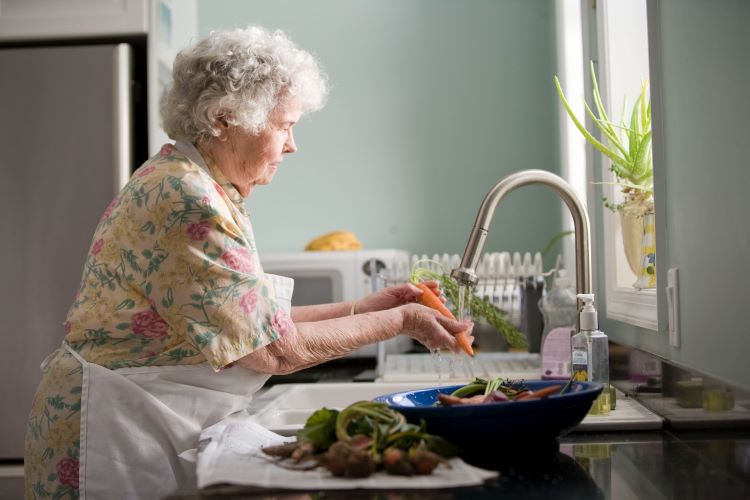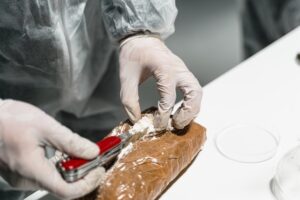Like a lot of areas throughout the UK, Cumbria has seen a rise in dangerous levels of drug-taking and alcohol consumption in recent years since the 2020 coronavirus lockdown.
Statistics reveal that there is a worrying trend showing an increase in women drinking alcohol to excess.
The CEO of the Cumbrian Alcohol and Drug advisory service claims that there has been a 25% increase in the demand for their treatment services since Lockdown.
The financial cost to the local communities because of excessive alcohol consumption is increasing every year, with an estimated £200 million spent repairing the damage, whether this is due to the pressure on local health services or policing the associated crime.
In Carlisle, it is estimated that the local authorities spend 44 million pounds on alcohol-related issues equating to £405 per person.
Get alcohol and drug rehab for various addictions such as binge drinking, alcohol addiction, benzodiazepine addiction, Buprenorphine addiction, cannabis use disorder, crack cocaine addiction, ketamine addiction, opioid use disorder, heroin addiction, cocaine dependence or cocaine addiction, physical dependence or codependency, substance use disorder, and behavioural addictions including gambling addiction and eating disorders.
Get the help you need from a first rate drug and alcohol rehab in Carlisle by calling us today on 0800 140 4690

The 9 types of physical addiction:
The 5 types of behavioural addiction:
What sets addiction apart from other neurological disorders is that it encompasses the 4 Cs – craving, compulsion, consequences and control.
Mental health problems and trauma can make you more likely to go on to develop addiction.
Having parents who abused substances when you were a child, and pressure from friends can also make you more likely to develop an addiction.
A study into a people with protein-coding gene known as CHRM2 has supported the theory that your genetics can make you more likely to fall into addiction.

If you fell into addiction, you may have noticed four stages as it worsened – experimentation, regular use, preoccupation and then dependency.
In the beginning you may have just tried a behaviour or substance for the first time to see what it was like.
This probably grew into more frequent use, as you used it more often.
In the end stages, you likely started thinking about it constantly.
Ultimately, you may now feel you can’t cope without the substance or behaviour day to day.
Making peace with your past in addiction, and believing in your ability to move forward are vital ingredients to a healthy recovery.
This mental wellbeing will carry you through, as you encounter obstacles and continue to choose sobriety into your future.

The 7 Rs can be applied to people in any kind of crisis, including addiction.
In order to regain your life, you’ll need to:
When you begin recovery, you’ll notice yourself enter the following stages in order:
Recovery time can change a lot from person to person.
The average time it will take is six months to five years.

Some people may require treatment for substance misuse but refuse to acknowledge this.
It may therefore be necessary for concerned relatives and friends to try and convince the person they care about to receive treatment if they believe they are vulnerable to physical and mental harm.
Friends and relatives have the option to liaise with organisations that carry out specialist intervention services.
These services possess the knowledge and techniques to persuade people to engage with addiction treatment services.
CRAFT is an example of such an approach used by intervention services to try and initiate a behaviour change in anyone resistant to treatment.
It involves coaching family members to respond in certain ways, dependent on whether their relative uses substances or exhibits abstinence.
Any substance use would be met with unfavourable behaviour from relatives, whilst any attempt from the user to stop taking substances would result in positive behaviour from relatives.
Seek to understand whether your loved one knows they are addicted, and if they want to stop.
Focus on the 5 As:
For advice on how to successfully conduct an intervention to guide a loved one towards attending drug and alcohol rehab in Carlisle, call us on 0800 140 4690

Only you can fully judge your intake of alcohol and drugs.
The most important thing is, to be honest with yourself.
Many addiction sufferers tend to deny they have an issue, and failing to see the issue with your addiction is often what leads to the destruction of families and relationships.
Regarding the number of drugs and alcohol you consume/use, you need to consider how your usage of drugs or alcohol influences your daily life and your choices.
Once you feel that your ability to function is impacted because of your addiction, it would be a good idea to try and call us.
One of our specialists will conduct an initial interview and advise you on your behaviour and whether you should consider a rehabilitation service.
If that ends up being the case, we will help you find the most suitable drug and alcohol rehab in Carlisle based on your needs, wants, and budget.
Once you check in at the inpatient service, the hard work starts: the detoxification process is the first step.
The withdrawal symptoms can be quite heavy depending on your addiction and the drug you have been using.
For heroin addicts and people who have been struggling with alcoholism, the withdrawal symptoms could be potentially deadly, and medical supervision in rehab is required.
If you think you may be in need of a drug and alcohol rehab in Carlisle, give our team a call today on 0800 140 4690

The CAGE questionnaire is a concise assessment tool designed to establish the severity of a person’s alcohol consumption, although this has now been adapted to include other substances.
CAGE consists of four items to which respondents answer either yes (1 mark) or no (0 marks).
The four questions investigate :
Any person scoring two or more would be strongly advised to see a medical professional for a detailed assessment.
If this questionnair has made you consider your own need for drug and alcohol rehab in Carlisle, call our team today on 0800 140 4690

Currently, it is estimated that it costs close to £500 per day to receive treatment at an inpatient treatment centre in the UK.
Most clients tend to stay in rehab for around 28 days which will set them back £14,000.
However, if you shop around, you may find some centres that charge £1,000 per week for treatment and others that charge £10,000 per week.
Many reasons account for this price discrepancy, including the location of the centre, the quality and the range of treatment options, and the number of clients receiving treatment alongside you.
For a more personalised estimation of the cost of your stay at a drug and alcohol rehab in Carlisle, call our team on 0800 140 4690

Many people who require treatment for their substance use disorder (SUD) have their treatment paid for through health insurance.
The main healthcare giants such as BUPA offer policies that cover essential aspects of addiction treatment; pharmacological treatment (drugs), psychiatric appointments, and psychotherapy, along with all the costs for a one-month residential stay.
Some larger organisations arrange health policies as part of their employees’ remuneration packages, including addiction treatment.
All policies differ, though, and each healthcare policy comes with its own terms and conditions, which must be examined thoroughly in order to establish which specific form of treatment it covers and which it doesn’t.
It is unlikely, for example, to pay for recreational activities and holistic therapies such as equine therapy.
Clients may well be required to cover any shortfall in treatment themselves should there be any misalignment with what they require and what their insurance will pay out.
There is also the option of upgrading your policy which will be more expensive but will provide more treatment cover.
It’s always best to be honest with your health insurance companies and your employer’s HR department about your situation, as keeping any information from them may make any policy null and void.
For help accessing a drug and alcohol rehab in Carlisle through health insurance, give our team a call today on 0800 140 4690

Anyone seeking to recover from substance addiction can apply for NHS funding to cover the expenses associated with treatment.
In the current climate, though, anyone in need of help is allocated to outpatient treatment programmes arranged by their local drug and alcohol team after a GP referral.
The majority of patients receiving residential rehab treatment are paying for private rehab.
This is due to the limited places offered through NHS funding, with funds generally being made available for outpatient/community treatments.
There is a difference in approaches to running addiction treatment services between local governments across the country.
However, your local substance misuse team, or statutory organisations such as Change Grow Live, can inform you of the relevant policy in your locality and help you with your funding application.
Free and NHS-run addiction treatment services in Carlisle include:
Address: Fairfield Centre, Carleton Clinic, Cumwhinton Drive, Carlisle, CA1 3SX
Telephone: 01228 603 017
Website: https://www.cntw.nhs.uk/services/child-and-adolescent-mental-health-service-east/
Address: 3-5 Victoria Pl, Carlisle, CA1 1EJ
Telephone: 0300 111 4002
Website: https://cadas.co.uk/
Address: 125-127 Botchergate, Carlisle, CA1 1RZ
Telephone: 01228 595566
Website: https://www.carlislekey.co.uk/
Anyone seeking to apply for residential rehab funding should contact their GP or local drug and alcohol team, who will ensure that they get registered onto the treatment system as the whole process is very time-consuming.
Whilst your application is proceeding, it would be beneficial for people to do what they can to help themselves and document all the evidence which will help with their funding application.
In the short term, support groups throughout the UK are available to attend free of charge.
However, building strong connections with key workers from local drug and alcohol teams is also important.
Finally, if your financial situation permits you to engage in therapy sessions privately, it can help your case because it will demonstrate your seriousness toward recovery.
Other organisations that can offer help for free include NHS Foundation Trust, Turning Point, We Are With You, National Association for Children of Alcoholics, Change Grow Live and Alateen.
Rehabs and organisations are advised by the American Society of Addiction Medicine and the National Institute for Health and Care Excellence so you are in safe hands with plenty of person-centered care.
You may also be offered sober living houses once you leave rehab to help you maintain your sobriety.
For help choosing between NHS and private drug and alcohol rehab in Carlisle, give our team a call today on 0800 140 4690

Most people who enter residential rehab stay there for 28 days.
During this time, they will work on understanding their own psychological and emotional processes in individual therapy sessions and group therapy sessions.
Other therapies can include Acceptance and Commitment Therapy, acupuncture, art therapy, cognitive behavioural therapy, dialectical behaviour therapy, drama therapy, Eye Movement Desensitization and Reprocessing, group psychotherapy, motivational therapy, Rational Emotive Behavior Therapy, brief intervention, contingency management, coping mechanisms work therapy, equine therapy, family therapy, group therapy, individual therapy, mindfulness, motivational interviewing, music therapy, art therapy and talking therapies.
They will also attend educational sessions to provide them with important psychological tools.
It is worth noting that some clients diagnosed with severe alcohol, opioid, or benzodiazepine dependence can be in treatment for one-to-two weeks longer.
This is because they may be required to have a medical detox to physically reduce the level of the substance in their body.
The NHS does provide therapy, but there’s often a long waiting list to see someone, as they don’t receive enough funding to meet the very high demand for these services.
For an estimation of how long your stay at drug and alcohol rehab in Carlisle will take, call our expert team on 0800 140 4690

Residential addiction treatment is expensive, but it is worth it in the long run as success rates are higher than for outpatient treatment.
People who feel they require treatment should calculate all the money they have available to pay for treatment and how much their treatment will cost overall.
This will help them decide if they need to apply for NHS funding or not.
Get the best possible drug and alcohol rehab in Carlisle for you – call us today on 0800 140 4690

Privately funded clients will not have to receive outpatient treatment initially if they can afford residential rehab.
This means they will be monitored around the clock and protected from negative influences without delay.
Access to treatment is immediate, so there is no disruption to the momentum once you have decided you need treatment; detox treatment can be set up in days.
You have more control over the location of your treatment.
You will be able to afford higher quality treatments that benefit from technological improvements and have a greater number of therapy sessions.
Your treatment can be modified to meet the exact requirements identified in your assessment interview.
To discover your options for private drug and alcohol rehab in Carlisle, call us on 0800 140 4690

The funding will pay for treatments that have been reinforced by scientific research as being effective for SUDs.
The application process is slow and protracted and can be disheartening.
Your individual needs may not be met, and certain therapies that you may benefit from may not be part of your treatment.
You may not receive residential treatment as part of your funding allowance, only outpatient treatment, which may hamper your ability to recover.
Whether you choose NHS or private drug and alcohol rehab in Carlisle, make sure your treatment is as effective as possible by calling us on 0800 140 4690

There are treatment services available on both an inpatient and outpatient basis in Carlisle.
Those seeking treatment need to contemplate several factors before deciding which option best suits their needs.
Both modes of treatment use proven interventions based on clinical research.
However, statistics suggest that clients who engage in residential treatment programmes have a higher chance of overcoming addiction.
The financial cost will be much greater for those attending residential rehab.
But there is the opportunity to receive NHS funding for outpatient treatment, which may be sufficient for many individuals.
If you have a severe addiction and you have relapsed on many occasions, then you may be better off in a residential setting.
In a safe residential setting, you can be monitored regularly and will not be exposed to triggers.
This is very important for those patients who are prone to relapsing.
All the important medical (including detox) and psychological interventions for substance use addiction can be organised on an outpatient basis, however, which means clients can still live at home whilst receiving treatment.
For help choosing between inpatient and outpatient drug rehab or alcohol rehab in Carlisle, call our team today on 0800 140 4690
People who recover from alcohol generally take two or fewer attempts to quit.
A good support network and strong treatment will bring your chances of success up.

Alcohol overdose looks like seizures, falling asleep, confusion, breathing problems, sickness, slow heart rate, slow responses and low body temperature.
If a very serious case is left untreated, it can result in brain damage and death.
If you’re a woman who has more than 8 drinks per week or a man who drinks more than 15 per week, you are a heavy drinker.
Only a professional can assess you and give you a formal diagnosis, but these questions can help you discover how alcohol affects you:
Type 1 alcoholics develop disordered drinking later in life, and experience fewer social consequences from drinking.
Type 2 alcoholics start young and go through a lot of social issues.

Severe alcoholics have died from withdrawing alone, so it’s important to make sure you do it safely.
If you’re elderly, you have a history of alcohol withdrawal seizures, or you have physical or mental health illnesses, you’re in a higher risk category for dangerous alcohol withdrawal symptoms.
See a doctor to ensure you can withdraw without medication.
Your vital organs are affected by toxins like alcohol.
The brain, nervous system, heart, liver and pancreas are the areas most affected.
If you drink heavily, your blood pressure and blood cholesterol levels can rise.
When this happens, you leave yourself at risk of heart attacks and strokes.
Alcoholics don’t live as long, with men on average reaching 47–53 years, and women 50–58 years.
Alcohol can leave your body deficient in calcium, magnesium, zinc and iron, so you should take a vitamin supplement if you do drink heavily.

As your mind and body weaken with old age, drinking can lead to accidents.
Your body’s defences to toxins aren’t what they used to be, so you’ll have more trouble recovering after a heavy night.
Past, present, partner, parents are important areas of yourself and your life known as the ‘4 Ps’.
Addiction specialists have theorised that alcoholics experience issues in their past and present.
If a person’s partner or parents abuse alcohol, this also puts a person at a higher risk.
The first essential ingredient is to admit to yourself that you need help.
Once you’ve adjusted to this reality, you’ll be able to accept treatment and begin to see the light at the end of the tunnel.

Rehab provides a good level of support, but it’s not your only option.
The NHS and addiction charities offer free and varied support, to make recovery possible for everyone.
Withdrawing on your own can be dangerous though, so you should consult a doctor before you detox.
When our bodies are exposed to alcohol excessively, they adjust to the chemicals in order to cope.
This leads to the central nervous system becoming overexcited when alcohol is taken away.
Your doctor, or addiction specialist will be able to examine you fully to see what level of support you’ll need while you detox.
Medication can help with these symptoms, and make withdrawal safer.
Addiction is what’s known as a ‘chronic relapsing disorder’.
40 – 60% of people with any addiction will inevitably relapse.
Usually, full recovery takes two or fewer attempts.
The right support can greatly increase these odds.

Cognitive Behavioural Therapy is a very effective at treating alcoholism.
83.87% of people in recent research made a permanent recovery.
23.80% of people with all addictions treated with cognitive behavioural relapse, according in another study.
These rates a much better than the average.
Nalmefene and Naltrexone put a stop to any positive feelings you get from drinking.
Acamprosate (Campral) balances the chemical signalling in the brain.
There are three pillars of recovery:
If you focus on each of these, you’ll be in a good overall state for a strong recovery.

Rehab locations in Carlisle have developed standardised treatments to help them treat clients who have alcohol dependence.
Alcohol dependence can be confirmed using the Alcohol Use Disorders Identification Test, DSM-5 or CAGE questionnaire.
Dependent drinkers will have built up a strong tolerance to alcohol, and experience unpleasant withdrawal symptoms (, alcohol withdrawal symptoms) or alcohol withdrawal syndrome when they stop drinking.
To ensure that the risk of seizures is curtailed our medical team prescribe patients with Chlordiazepoxide, brand name Librium, as they undergo detox as this has been shown to offer extra protection against the risk of seizures.
A medically-assisted detox is needed in order to try to prevent the effects of alcohol, including encephalopathy (Wernicke encephalopathy) and delirium tremens.
Specifically, uncomfortable withdrawal symptoms such as headaches, insomnia, hand tremors, and irritability, to name but a few.
There is also the added danger of suffering from seizures for anyone who stops drinking alcohol suddenly after heavy use.
To guard patients against the possibility of experiencing life-threatening seizures when initially coming off the drug, our medical team conduct medical detox treatments.
Librium is prescribed, which contains chemicals that reduce the chances of seizures developing.
This keeps patients safe whilst minimising the toxic effect that alcohol has on the body.
Medical detox procedures usually take seven-to-ten days to complete.
Once the detox has been completed, clients can engage in therapy.
This step is necessary to come to terms with the psychological elements that initiated and maintained their substance dependence.
A medication called Acamprosate (Campral) is available via prescription and can help eliminate cravings.
Generally people are able to stay sober after two or less attempts to recover.
If you suffer from any mental health problems, or if you don’t have a solid treatment and support network, you may be at more risk of relapse.
Get the support you need from an alcohol rehab in Carlisle by calling us on 0800 140 4690

Although research for treatment for cocaine addiction is always ongoing, there is currently no drug treatment available to detox from cocaine.
The medical practitioners based at our rehab centres, however, possess great expertise in helping clients withdraw from cocaine with as least discomfort as possible.
This is achieved by providing guidance on the most suitable medication to tackle each individual withdrawal symptom when it appears.
Our staff are also aware of effective techniques to manage withdrawal symptoms related to insomnia and anxiety.
All clients are given extra medical care and attention during the early part of the withdrawal phase.
This is to ensure they do not suffer any adverse physical reactions, and our specialist nurses will be on hand to deal with any unpredictable reactions that do occur.
There are also proven psychological interventions that can be used to help clients give up cocaine.
CBT has been used successfully in transforming people’s thought patterns and beliefs relating to their cocaine use and is, therefore, a stable feature on all treatment plans.
Contingency management approaches have also been successful, and this involves using financial or material incentives to encourage clients to give up cocaine.
Beat your cocaine addiction with the help of a drug and alcohol rehab in Carlisle – call us today on 0800 140 4690

The well-established rehab teams that we work with in Carlisle recognise the importance of providing emotional support and psychotherapy to clients who are recovering from heroin addiction or heroin withdrawal.
Clinical research suggests that detox treatment alone is not sufficient.
In order for people to avoid relapsing back into heroin use, psycho-social treatment is key.
Indeed, the recovery success rate increases up to over 65% when psycho-social treatment is employed.
Rehab institutions use effective and reliable pharmacological detox methods, which include the use of substitute drugs such as Methadone or Buprenorphine.
This guarantees patients a safe detox from heroin and will avoid the life-threatening withdrawal symptoms that come with the ‘cold turkey’ approach.
Heroin is a drug with a high relapse potential, so only after the initial one-to-two-week detox period is over can clients move on to the therapy stage.
A four-week programme of group and individual therapies and learn effective cognitive skills to avoid reverting to heroin use.
You can also receive treatment for any other effects of heroin, such as hepatitis.
Beat your heroin addiction with the help of a drug and alcohol rehab in Carlisle – call us today on 0800 140 4690

All treatment centres are familiar with working with clients with cannabis addiction, and there are now recognised protocols to treat this condition.
No medical detox treatment is available to help clients withdraw from cannabis, as it is not as addictive or harmful as heroin.
Although long-term use can significantly limit your cognitive abilities and can lead to serious mental health conditions like psychosis, anxiety,
post traumatic stress disorder (PTSD), bipolar disorder, borderline personality disorder, obsessive compulsive disorder or
For this reason, our medical team will check for signs of psychosis and liaise with psychiatric services to ensure each patient does not have schizophrenia triggered by their cannabis use.
All our clients are supported emotionally and medically as they progress through the early withdrawal phase.
Some clients may experience uncomfortable symptoms such as anxiety and insomnia.
A key component of cannabis rehab is counselling and therapy with the aim of understanding the complex social and emotional factors underlying cannabis use.
The 12-step programme will help them work towards abstinence and recovery whilst learning relapse prevention skills will help them resist cravings and temptations.
Beat your cannabis addiction with the help of a drug and alcohol rehab in Carlisle – call us today on 0800 140 4690

There are many different therapies available to you at rehab in Carlisle.
However, not everyone will receive all of the therapies on offer, as each client’s treatment plan is based on individual circumstances.
Get the best possible therapies for your specific needs at a drug and alcohol rehab in Carlisle. Call our team today on 0800 140 4690

An essential component of the assessment process for rehab involves establishing whether you have another mental health condition present alongside your addiction.
You will receive a psychiatric assessment from a trained psychiatrist in order to determine whether you need psychiatric treatment.
Addiction is a very complex condition; likely, many rehab clients will also suffer from anxiety, depression, schizophrenia, and post-traumatic stress disorder (PTSD).
Borderline personality disorder and anti-social personality disorder are the dual diagnosis you’re most likely to have if you’re in addiction.
It is difficult for the team to assess which condition the client developed first.
But more importantly, how the two conditions influence each other. This is very important in determining the course of their treatment.
For example, research indicates that people diagnosed with PTSD drink alcohol to shut out unbearable symptoms.
Whereas some clients can develop a mood disorder as their brain chemistry is altered after excessive alcohol use.
Many organisations across the UK offer free mental health support, whether you are also suffering from addiction or not.
Some of these include Mind UK, Young Minds, Rethink Mental Illness, Samaritans and Papyrus.
Find out more about how a drug and alcohol rehab in Carlisle will support your mental health needs by calling us on 0800 140 4690

At rehab in Carlisle, psychological practitioners are committed to preparing clients for life after rehab.
Relapse after rehab is a real concern, and many people will find it very difficult to remain sober after they have left the safe and trigger-free environment of rehab.
Therefore, before your time at rehab comes to an end, you will , together with a team member, create a relapse prevention plan.
This plan will include the following:
People who have made good progress in their recovery have found meaning in their life by; following different career paths, building better relationships with family and friends, developing spiritual practices, and becoming involved more in community practices.
Our rehab team will help clients identify the things that are important to them in life and work with them to build a plan for achieving this.
Beat addiction once and for all at a drug and alcohol rehab in Carlisle – call us today on 0800 140 4690

It is important for all clients to continue the good progress that they have made during rehab when they leave.
There are several sources of support available to them, which include: Support groups such as Alcoholics Anonymous, Narcotics Anonymous and Cocaine Anonymous, all of which will still be available long after people leave rehab.
It is common for clients to continue attending meetings for years to keep them focused, so they do not relapse.
Al-Anon Family Group meetings will also be available for family members to continue to attend.
This is provided for family members who feel they need support and guidance from others who have been through similar experiences.

SMART Recovery offers people who have been affected by substance use the chance to gain psychological skills and tools.
With these tools, patients will be able to gain control of their thoughts, deal with emotions, and resist strong urges to take substances.
They also run personal development workshops for anyone struggling to find direction in their lives.
Make sure that your time at a drug and alcohol rehab in Carlisle is matched by an equally effective aftercare plan by calling us on 0800 140 4690

The Outpatient Treatment via a local Drug & Alcohol team in Carlisle will always only be a phone call away.
We can provide a listening ear for your concerns and to signpost you to services and resources that you will find beneficial.
They understand the nature of addiction and do not leave clients who have left rehab feeling unsupported.
Clients are strongly encouraged to keep in touch with their local drug and alcohol team.
Make sure that your time at a drug and alcohol rehab in Carlisle is matched by an equally effective aftercare plan by calling us on 0800 140 4690

If this page has made you consider your own needs for drug and alcohol treatment in Carlisle, give our team a call today.
Every rehab in England and Wales that we work with is vetted by the Care Quality Commission.
Get help for addiction anywhere in Cumbria, including in Burrow-in-Furness, Kendal, Workington, Whitehaven, Penrith, Ulverston, Maryport, Windermere, Dalton in Furness, Cockermouth, Egremont, Millom, Cleater Moor, Wigton, Keswick, Wetheral, Seaton, Brampton, Grange-over-Sands and many more.
The local substance use team can still arrange home detox should anyone relapse in the future, and anyone who feels they are struggling should reach out and ask for help.
To begin your recovery journey at a drug and alcohol rehab in Carlisle, please call our 24-hour helpline today on 0800 140 4690
 Substance addiction, also referred to as Substance Use Disorder (SUD), is a chronic and relapsing brain disease that affects both physical and psychological functioning. It develops when repeated exposure to drugs or alcohol alters brain chemistry, particularly the reward and motivation systems, leading to compulsive substance use despite harmful c .... Read More
Substance addiction, also referred to as Substance Use Disorder (SUD), is a chronic and relapsing brain disease that affects both physical and psychological functioning. It develops when repeated exposure to drugs or alcohol alters brain chemistry, particularly the reward and motivation systems, leading to compulsive substance use despite harmful c .... Read More
 Addiction recovery is a deeply personal and individual journey. The decision to seek help for your drug or alcohol addiction and rebuild your life generally happens quietly, sometimes after years of struggle. But while recovery starts at an individual level, it’s rarely successful in isolation. Behind most long-term recovery stories is a time whe .... Read More
Addiction recovery is a deeply personal and individual journey. The decision to seek help for your drug or alcohol addiction and rebuild your life generally happens quietly, sometimes after years of struggle. But while recovery starts at an individual level, it’s rarely successful in isolation. Behind most long-term recovery stories is a time whe .... Read More